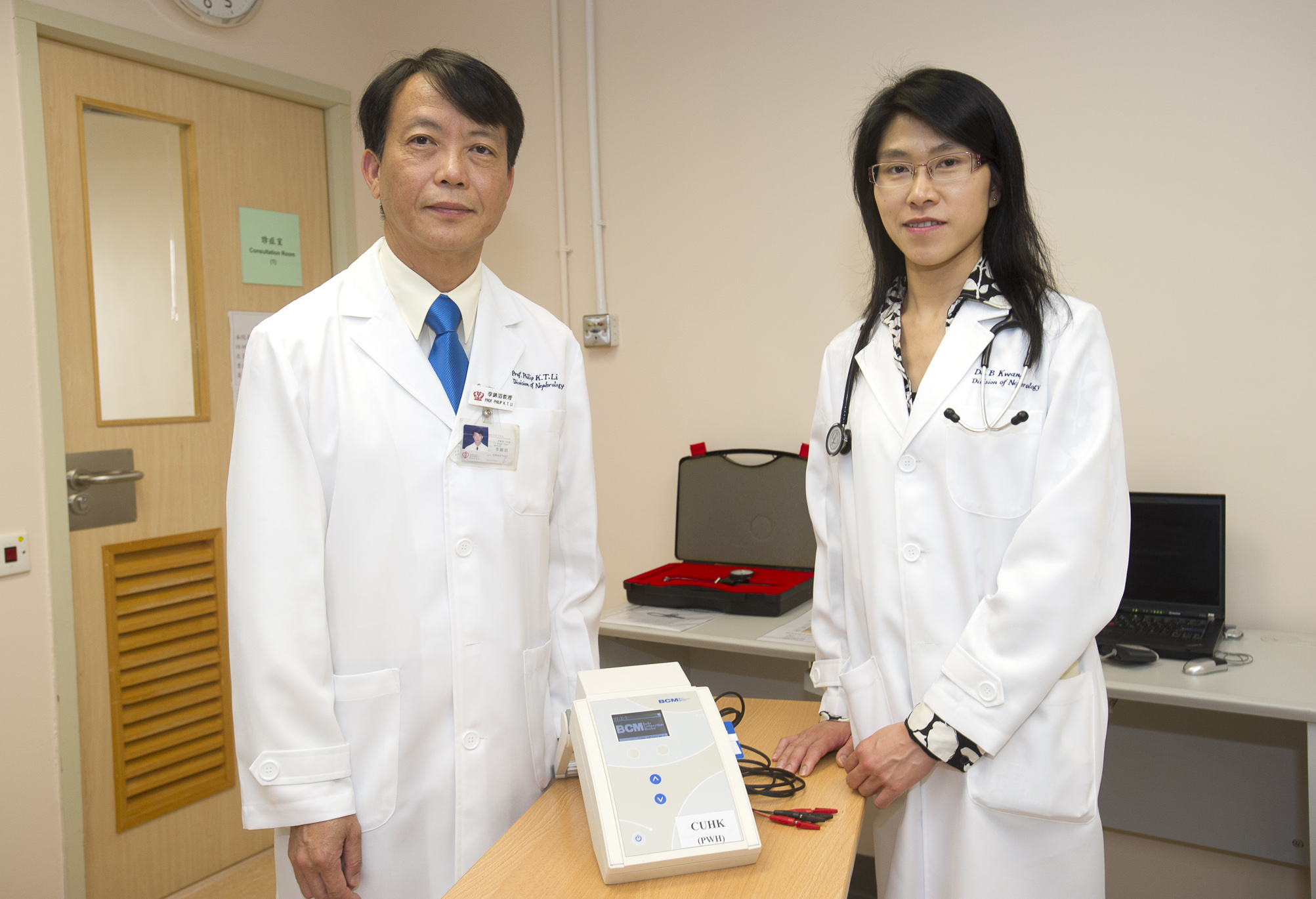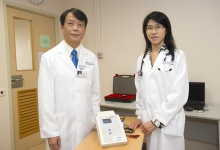CUHK
News Centre
CUHK Pioneers Innovative Bioimpedance Spectroscopy forEarly Assessment of Cardiovascular Risks of End Stage Renal Failure Patients
According to the statistics released by the Hospital Authority, there are over 4,500 end stage renal failure patients in Hong Kong in 2012. These patients may have less than 10% of renal function and need to receive Peritoneal Dialysis (PD) or hemodialysis treatment to sustain their lives. End stage renal failure patients fail to remove accumulated waste and excess water from the body which may lead to fluid overload. Fluid overload is a major risk factor of cardiovascular diseases among renal failure patients, which can lead to heart failure or death. Timely diagnosis and intervention of fluid overload is therefore essential. A research team led by Professor Philip Kam Tao LI, Chief of Nephrology and Honorary Professor, and Professor Bonnie Ching Ha KWAN, Associate Professor, Department of Medicine and Therapeutics at The Chinese University of Hong Kong (CUHK) has pioneered the use of an innovative technology—Bioimpedance Spectroscopy (BIS) to detect patient’s fluid overload at an early stage, allowing timely interventions for improving the cardiovascular health of end stage renal failure patients.
In conventional physical examinations, abnormal body water volume cannot be detected until symptoms of ankle edema or elevated jugular venous pressure appear. In 2009, CUHK introduced the simple, sensitive and non-invasive Bioimpedance Spectroscopy as a new technology to assess fluid overload of patients. By connecting two electrodes to the patient’s hand and foot, the monitor can measure at 50 frequencies over a range from 5 to 1,000 kHz to determine the electrical resistance of the body and show the total body water and extracellular water status of the patient.
The research team led by Professor Li and Professor Kwan has examined 122 asymptomatic prevalent renal failure patients (68 males, 54 females, mean age: 60 years old, 44% diabetic) with bioimpedance spectroscopy. The study revealed that 88 (72.1%) of them suffered over-hydration of more than 1 litre, of which 25 suffered over-hydration of more than 5 litres. Male patients, diabetic patients and patients with high systolic blood pressure tended to have more severe over-hydration. Upon detection of fluid overload in renal failure patients, medical practitioners can give patients timely advice of reducing salt and fluid intake and use icodextrin PD solution to remove excess fluid to alleviate the patient’s blood pressure and heart failure symptoms.
About ‘CUHK Carol and Richard Yu Peritoneal Dialysis Research Centre’
Throughout the years, CUHK has been dedicated to enhancing the quality and effectiveness of peritoneal dialysis treatments for renal failure patients through research and experiments. With the generous donation from Professor Richard Yu, The CUHK Carol and Richard Yu Peritoneal Dialysis Research Centre, will be launched on 23 November 2012. Under the leadership of Centre Director Professor Philip Kam Tao LI, various high quality clinical, basic sciences and translational research will be carried out to enhance the treatments for renal failure patients using peritoneal dialysis.





